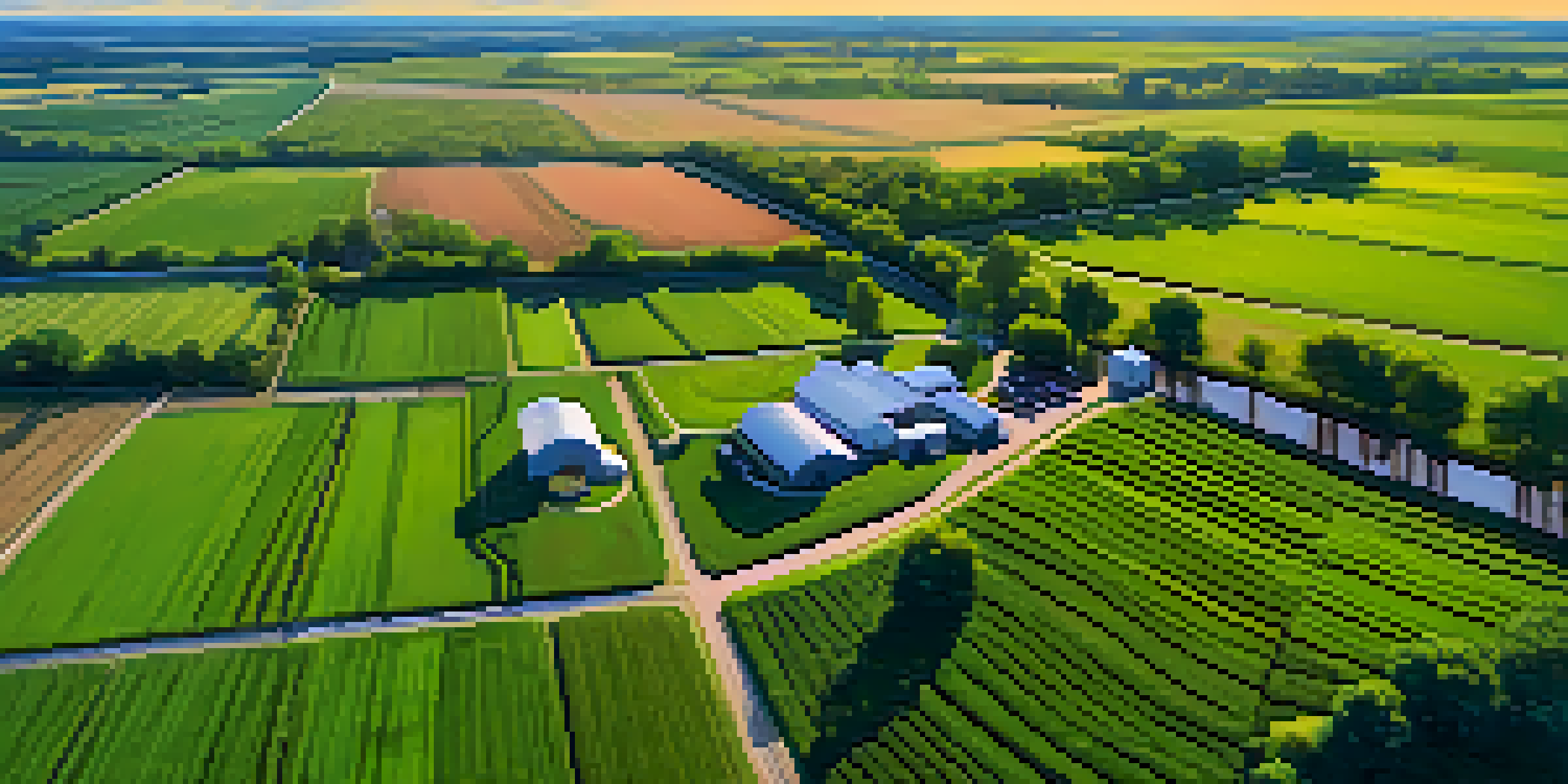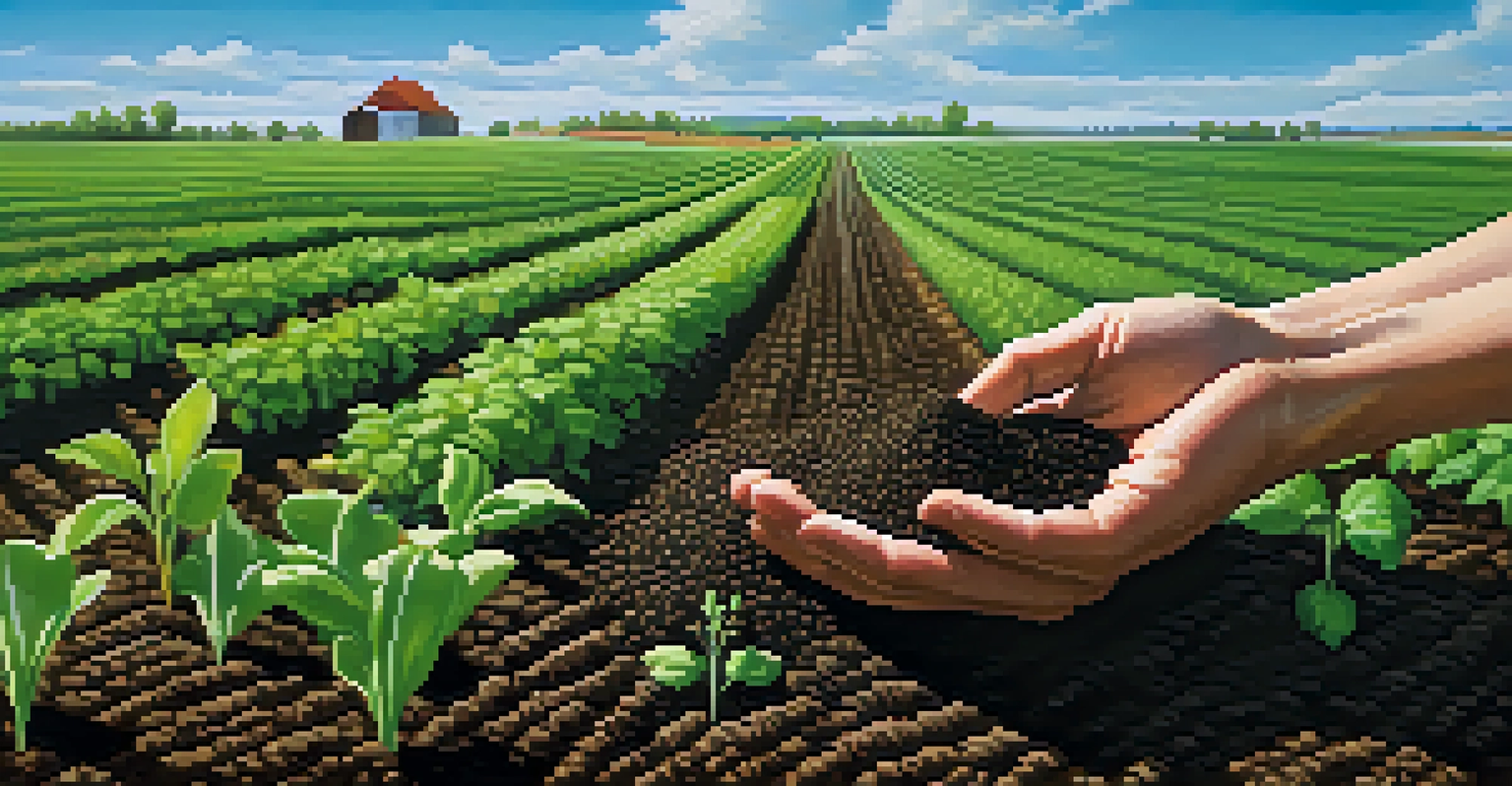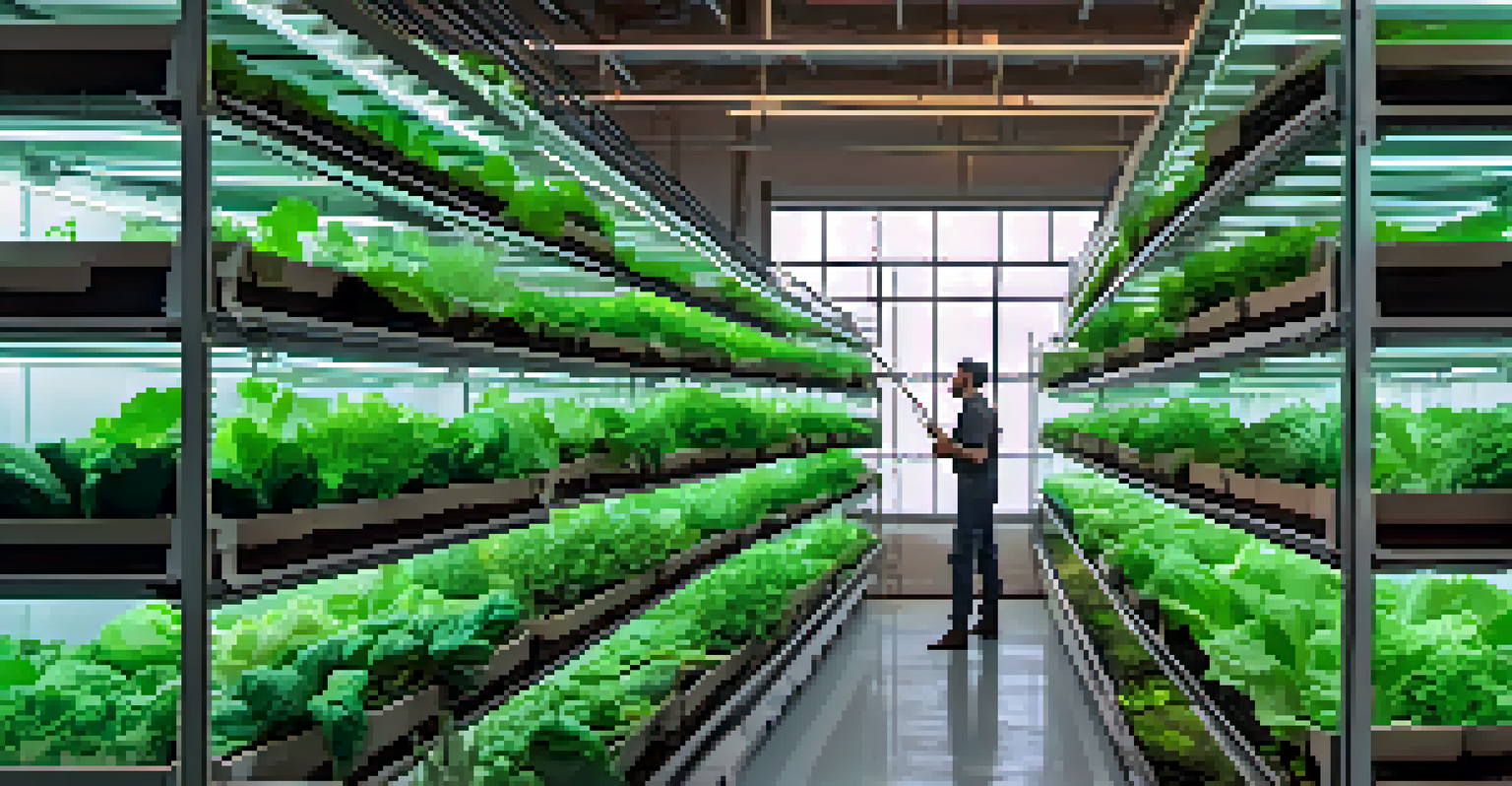Innovations in Illinois Agriculture: A Look at Future Trends

The Rise of Precision Agriculture in Illinois
Precision agriculture is revolutionizing farming in Illinois by utilizing technology to enhance crop yields. Farmers are now equipped with GPS tools and data analytics, allowing them to monitor field conditions and apply resources more efficiently. This means less waste and a more focused approach to farming, which is crucial in today’s competitive market.
The agriculture of the future will be more productive and sustainable, thanks to advancements in technology and a deeper understanding of the environment.
For instance, by using drones, farmers can assess crop health from above, identifying areas that need attention. This real-time data helps them make informed decisions, such as where to apply fertilizers or pesticides. The result? Healthier crops and reduced environmental impact, showcasing how innovation can align with sustainability.
As this technology becomes more accessible, we can expect to see a broader adoption across farms of all sizes. This shift not only boosts productivity but also encourages a new generation of tech-savvy farmers, ready to embrace the future of agriculture.
Sustainable Practices: A Growing Focus
Sustainability is more than just a buzzword; it's becoming a central theme in Illinois agriculture. Farmers are increasingly adopting practices that protect the environment while maximizing productivity. This includes crop rotation, cover cropping, and integrated pest management, all aimed at maintaining soil health and biodiversity.

Take cover cropping, for example. By planting certain crops in the off-season, farmers can prevent soil erosion and improve nutrient retention. This not only enhances soil quality but also contributes to better yields in the long run. It’s a win-win situation for both farmers and the ecosystem.
Tech Enhances Farming Efficiency
Precision agriculture and data analytics are transforming Illinois farming by enabling farmers to optimize resource use and boost crop yields.
The shift toward sustainable practices is also being driven by consumer demand for responsibly sourced products. As more individuals seek out organic and locally-grown foods, farmers are recognizing the need to adapt their methods to meet these expectations, thus ensuring a viable future for Illinois agriculture.
The Role of Biotechnology in Crop Development
Biotechnology is playing a pivotal role in developing crops that can withstand climate challenges. In Illinois, researchers are focusing on genetically modified organisms (GMOs) that are resistant to pests and diseases, which can significantly reduce reliance on chemical treatments. This innovation not only helps in maintaining crop health but also boosts farmer profits.
Innovation in agriculture is not just about technology; it’s about creating systems that can adapt to the challenges of tomorrow.
One notable example is the development of drought-resistant corn varieties. Given the unpredictable weather patterns, these crops can thrive even under less-than-ideal conditions, ensuring food security and stability for farmers. This adaptability is crucial as climate change continues to impact agricultural practices.
As public perception around biotechnology evolves, we may see increased acceptance and support for these advancements. Educating consumers about the benefits of GMOs could pave the way for more widespread adoption, ultimately benefiting both farmers and the environment.
AgTech Startups: Driving Innovation Forward
Illinois is becoming a hotspot for AgTech startups, which are at the forefront of agricultural innovation. These companies are developing cutting-edge solutions ranging from farm management software to advanced sensor technology. By harnessing the power of technology, they aim to solve some of the industry's biggest challenges.
For instance, a local startup might create an app that allows farmers to track their equipment and monitor field conditions in real time. Such tools not only streamline operations but also empower farmers to make data-driven decisions. The collaboration between tech entrepreneurs and traditional farmers could lead to remarkable advancements in efficiency.
Sustainability Drives Agricultural Change
Farmers in Illinois are increasingly adopting sustainable practices to meet consumer demand for responsibly sourced products while enhancing productivity.
As more investors recognize the potential of AgTech, we can expect an influx of resources and talent into the sector. This growth will likely spur further innovation, making Illinois a leader in agricultural technology and paving the way for a more resilient agricultural system.
Vertical Farming: An Urban Solution
Vertical farming is emerging as a fascinating solution to food production challenges, especially in urban areas of Illinois. This innovative approach involves growing crops in stacked layers, often integrated into urban settings like warehouses or rooftops. This method significantly reduces land usage while providing fresh produce to local communities.
The benefits of vertical farming extend beyond space conservation. Controlled environments allow for year-round cultivation, independent of seasonal changes. This means that cities can enjoy a consistent supply of fresh vegetables, reducing their reliance on long-distance transportation and lowering carbon footprints.
As urban populations continue to grow, vertical farming could play a key role in ensuring food security. By blending agriculture with modern technology, we can create sustainable food systems that cater to the needs of urban dwellers while promoting local economies.
Data Analytics: Transforming Farm Management
Data analytics is transforming the way farmers manage their operations in Illinois. By collecting and analyzing vast amounts of data, farmers can gain insights into everything from soil health to market trends. This information empowers them to make strategic decisions that can enhance productivity and profitability.
For example, using data analytics tools, a farmer can analyze past crop performance to determine which varieties thrive in specific conditions. This level of insight helps them optimize planting strategies and resource allocation, ultimately leading to better yields. It’s like having a crystal ball for farming!
AgTech Innovations Propel Growth
The rise of AgTech startups in Illinois is driving innovation, providing farmers with advanced tools to tackle industry challenges and improve efficiency.
As technology continues to evolve, the integration of data analytics in agriculture is expected to deepen. This shift will not only help individual farms thrive but also contribute to the overall resilience of the agricultural sector in Illinois.
The Future of Labor in Illinois Agriculture
The labor landscape in Illinois agriculture is changing, with technology taking on a more prominent role. Automation and robotics are becoming increasingly common, helping to address labor shortages while boosting efficiency. This shift is particularly important in an industry that often relies on seasonal workers.
For instance, automated machinery can perform tasks like planting, harvesting, and even sorting crops, minimizing the need for manual labor. This not only speeds up operations but also allows farmers to focus on higher-level decision-making and strategic planning. The use of technology is transforming traditional farming roles.

As the workforce adapts to these changes, there will likely be a growing demand for tech-savvy individuals who can manage and maintain these advanced systems. Training and education will play a critical role in preparing the next generation for careers in this evolving agricultural landscape.
Conclusion: Embracing Innovation for a Sustainable Future
In conclusion, Illinois agriculture stands at the brink of a technological revolution. From precision farming and biotechnology to urban farming solutions, the innovations emerging today are set to redefine the industry. By embracing these advancements, farmers can enhance productivity while promoting sustainability.
The collaboration between traditional practices and modern technology is vital for addressing the challenges of the future. As we navigate climate change, economic pressures, and shifting consumer preferences, innovation will be key to ensuring a resilient agricultural landscape.
By fostering an environment that encourages research, investment, and education, Illinois can lead the way in agricultural innovation. The future of farming is bright, and with continued commitment to progress, we can cultivate a sustainable and prosperous agricultural sector.